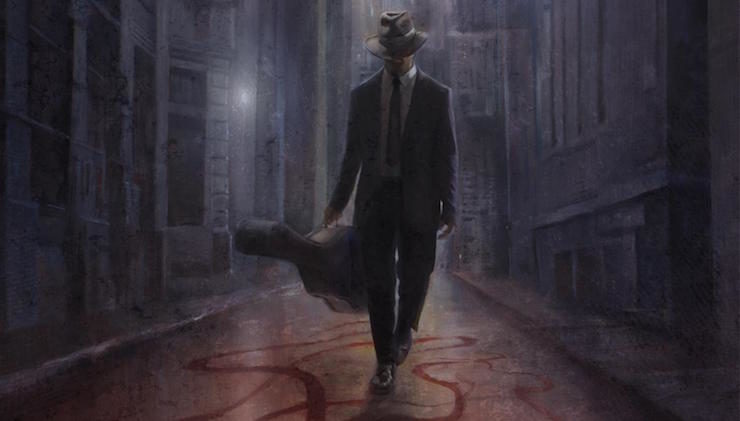Earlier this year, Jordan Peele’s directorial debut, Get Out, opened to critical accolades and quickly became a box office hit, and now it seems that Peele will be making another foray into the horror genre—one that has literary roots, this time. Specifically, he’s producing an adaptation for HBO of Matt Ruff’s novel Lovecraft Country, set in post-World War II America, and featuring an ensemble cast of characters who contend with fearsome supernatural entities and the even-more ominous presence of murderous racists across the nation. Ruff’s novel includes everything from secret mystical societies to interdimensional travel to body horror, giving Peele and his collaborators plenty to work with.
Among the many lessons that can be taken from the abundant success of both Get Out and Lovecraft Country is a reminder that horror can be used to elucidate powerful sociopolitical concepts, and explore ideas in a way where a more realistic narrative might fall short. Of course, these are far from the only recent works that have sought to blend politically conscious themes with the unsettling imagery of horror. Here’s a look at five recent books that do exactly that, from venturing into legacies of trauma to grappling with questions of race and class–all the while leaving the reader unsettled in the way that only the best horror can.
Hari Kunzru, White Tears
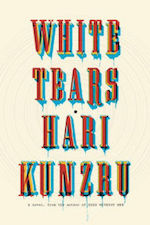 The nature and extent of cultural appropriation is a hotly debated topic these days, and for good reason. In Hari Kunzru’s haunting novel White Tears, those questions take on a terrifying, even supernatural, context. (Though one of Kunzru’s skills as a writer is the way that the novel can be interpreted in multiple ways, a la The Turn of the Screw.) At the center of Kunzru’s narrative are two young white guys–one from an affluent background, one not–who assemble what seems to be a convincing facsimile of a 1920s blues recording from field recordings they make around the city. And then things basically go to hell: acts of horrifying violence occur, and time, space, and identity start to collapse for the narrator. The result is a harrowing book that puts a gripping spin on a number of deeply relevant societal and cultural questions.
The nature and extent of cultural appropriation is a hotly debated topic these days, and for good reason. In Hari Kunzru’s haunting novel White Tears, those questions take on a terrifying, even supernatural, context. (Though one of Kunzru’s skills as a writer is the way that the novel can be interpreted in multiple ways, a la The Turn of the Screw.) At the center of Kunzru’s narrative are two young white guys–one from an affluent background, one not–who assemble what seems to be a convincing facsimile of a 1920s blues recording from field recordings they make around the city. And then things basically go to hell: acts of horrifying violence occur, and time, space, and identity start to collapse for the narrator. The result is a harrowing book that puts a gripping spin on a number of deeply relevant societal and cultural questions.
Livia Llewellyn, Furnace
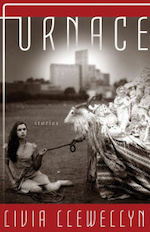 The short fiction of Livia Llewellyn is haunting in the best way possible: it’s visceral, set in spaces where the laws of reality can shift at a moment’s notice, and paranoia is an understandable response to the condition of the world. And in works like the title story and “The Last Clean, Bright Summer,” Llewellyn turns things like the legacy of trauma and questions of gender and violence into the stuff of evocative, shocking fiction. Llewellyn’s fiction is often wrenching, tapping into primal fears while also channeling a sense of urgency throughout.
The short fiction of Livia Llewellyn is haunting in the best way possible: it’s visceral, set in spaces where the laws of reality can shift at a moment’s notice, and paranoia is an understandable response to the condition of the world. And in works like the title story and “The Last Clean, Bright Summer,” Llewellyn turns things like the legacy of trauma and questions of gender and violence into the stuff of evocative, shocking fiction. Llewellyn’s fiction is often wrenching, tapping into primal fears while also channeling a sense of urgency throughout.
Victor LaValle, The Ballad of Black Tom
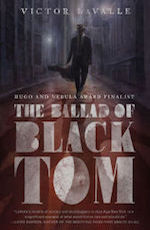 Victor LaValle’s acclaimed short novel is both a riveting story set in the world of H.P. Lovecraft’s Cthulhu Mythos and a powerful takedown of the racist attitudes that abound in Lovecraft’s fiction. In telling a story set in a 1920s New York that’s more realistic–and more dangerous–than anything Lovecraft set on paper, LaValle demonstrates how writers can tap into the well of cosmic horror without running into some of the more poisonous sentiments that can arise when reading the stories that launched the genre. The Ballad of Black Tom also deals with questions of privilege and violence, making it a gripping read whether or not you’re familiar with Lovecraft’s body of work.
Victor LaValle’s acclaimed short novel is both a riveting story set in the world of H.P. Lovecraft’s Cthulhu Mythos and a powerful takedown of the racist attitudes that abound in Lovecraft’s fiction. In telling a story set in a 1920s New York that’s more realistic–and more dangerous–than anything Lovecraft set on paper, LaValle demonstrates how writers can tap into the well of cosmic horror without running into some of the more poisonous sentiments that can arise when reading the stories that launched the genre. The Ballad of Black Tom also deals with questions of privilege and violence, making it a gripping read whether or not you’re familiar with Lovecraft’s body of work.
Caitlín R. Kiernan, The Drowning Girl
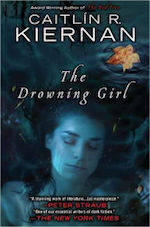 Certain works of fiction elude easy description. The Drowning Girl does this in epic fashion: just when you think you have Caitlín R. Kiernan’s novel figured out, it reveals new dimensions and calls into question all that you’ve read. All the while, it tells a story that juxtaposes a portrait of life with mental illness with surreal forays into the supernatural. The Drowning Girl movingly gives a powerful sense of its narrator’s everyday life while also succeeding as horror fiction.
Certain works of fiction elude easy description. The Drowning Girl does this in epic fashion: just when you think you have Caitlín R. Kiernan’s novel figured out, it reveals new dimensions and calls into question all that you’ve read. All the while, it tells a story that juxtaposes a portrait of life with mental illness with surreal forays into the supernatural. The Drowning Girl movingly gives a powerful sense of its narrator’s everyday life while also succeeding as horror fiction.
Paul Cornell, Chalk
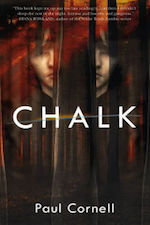 In Paul Cornell’s Chalk, the circular nature of bullying and abuse spirals into something horrifying and primal. Protagonist Andrew is coming of age in Thatcher-era England, and is repeatedly the target of a group of his fellow high school students, whose abuse veers into a particularly harrowing direction. Soon, Andrew is joined by a sinister doppelgänger, out for revenge. Cornell aptly describes the cyclical nature of abuse in this novel, but he also hearkens back both to the recent past (the novel wouldn’t be nearly as effective had Thatcher’s time in office not been an aspect) and the far more distant past, when ritual and primal systems lurked in the background.
In Paul Cornell’s Chalk, the circular nature of bullying and abuse spirals into something horrifying and primal. Protagonist Andrew is coming of age in Thatcher-era England, and is repeatedly the target of a group of his fellow high school students, whose abuse veers into a particularly harrowing direction. Soon, Andrew is joined by a sinister doppelgänger, out for revenge. Cornell aptly describes the cyclical nature of abuse in this novel, but he also hearkens back both to the recent past (the novel wouldn’t be nearly as effective had Thatcher’s time in office not been an aspect) and the far more distant past, when ritual and primal systems lurked in the background.
 Tobias Carroll is the managing editor of Vol.1 Brooklyn. He is the author of the short story collection Transitory (Civil Coping Mechanisms) and the novel Reel (Rare Bird Books).
Tobias Carroll is the managing editor of Vol.1 Brooklyn. He is the author of the short story collection Transitory (Civil Coping Mechanisms) and the novel Reel (Rare Bird Books).










